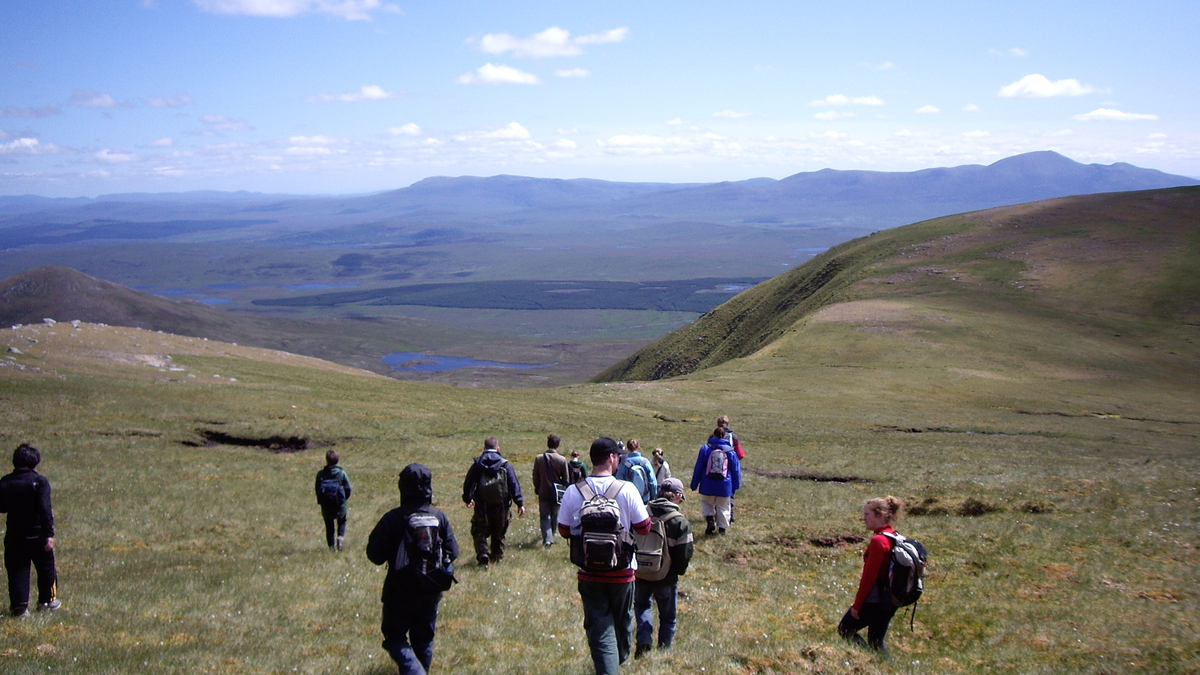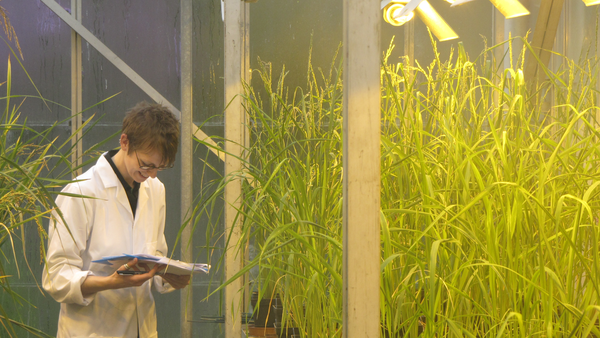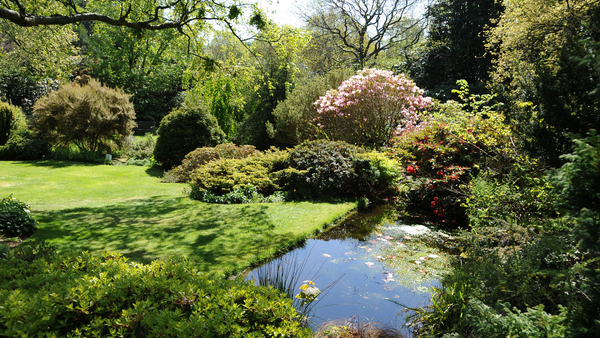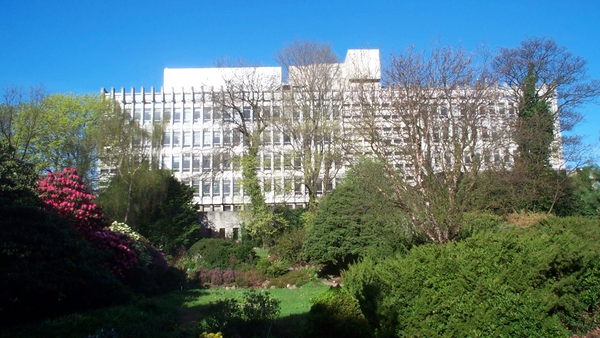Leanne Riddoch United Kingdom

This programme is designed to equip you with a range of contemporary ecological and transferable skills that will provide an invaluable basis for your career.

Our MSc programme provides flexibility to enable you to gain knowledge and skills to meet your career aspirations, whether in research or as a practising ecologist. You will have the opportunity to gain hands on experience of everything from field survey to chairing discussions, from statistics and modelling to report writing and from identifying important ecological questions to researching them and writing a scientific paper. Previous graduates have gone on to the top of their chosen profession in research, consultancy, conservation, policy, education and advocacy.
Throughout the programme you will receive core training in plant community ecology, animal population ecology, GIS and experimental design and analysis (which includes use of R). You can select from a broad range of optional courses allowing you to tailor your studies to your interests and career aspirations. Students wishing to gain research training may join our informal ecology research group seminars throughout the year. Those interested in applied ecology may choose to study catchment management, marine spatial management and conservation management planning, amongst others. A key course for those aiming to work in consultancy is Environmental Impact Assessment. The opportunity to place your ecological study in a broader, interdisciplinary context is provided through a very popular course on ecology, conservation and society.
An important component of the programme is the individual research project which enables you to develop expertise and contacts in a topic of your own choosing. Preparation may begin as early in the year as you like.
Stage 1 compulsory courses include:
This course, which is prescribed for all taught postgraduate students, is studied entirely online, takes approximately 5-6 hours to complete and can be taken in one sitting, or spread across a number of weeks.
Topics include orientation overview, equality and diversity, health, safety and cyber security and how to make the most of your time at university in relation to careers and employability.
Successful completion of this course will be recorded on your Enhanced Transcript as ‘Achieved’.
Plus one of the following courses:
Stage 2 compulsory courses include:
15 Credit Points
Lectures and structured workshops develop your knowledge of the principles and practice of geographic information systems, and familiarise you with ArcGIS software, enhancing your employability.
An individual investigation allows you to explore a specific application that you are interested in and demonstrate your proficiency with the software and your command of the conceptual underpinnings.
A flexible teaching and learning environment allows for individualised learning and enrichment for students with existing skills in GIS.
15 Credit Points
The course provides background information about the origins and development of Environmental Impact Assessment (EIA) process, and its implementation in the UK and elsewhere. It also highlights the significance of impacts associated with selected developments addressed in detail in seminars. The lectures and seminars are supported by workshop sessions focusing on case studies and providing insights into the issues that arise during the EIA. The course also provides an opportunity to develop transferrable skills valued by employers, such as team-working, time-management, communication of science, and critical appraisal. Throughout the course you will work with genuine EIA materials utilised during different stages of the EIA process, to identify likely environmental effects, judge their significance, and propose how they should be assessed and mitigated.
60 Credit Points
The three-month individual Research Project can cover any area of ecology and/or conservation and is undertaken under the supervision of a member of staff who is an expert in your chosen field. Many projects are also done in collaboration with an external organisation. The project provides opportunities for you to develop your abilities and skills, generate hypotheses and design ways of testing them and to analyse, report and discuss your findings. You will learn to take responsibility for implementing your own plans and modifying them as necessary. The project is written up in the style of a scientific paper manuscript or a consultancy report.
We will endeavour to make all course options available; however, these may be subject to timetabling and other constraints. Please see our InfoHub pages for further information.
| Fee category | Cost |
|---|---|
| UK | £12,200 |
| Tuition Fees for 2024/25 Academic Year | |
| EU / International students | £27,000 |
| Tuition Fees for 2024/25 Academic Year |
Further Information about tuition fees and the cost of living in Aberdeen
Self-funded international students enrolling on postgraduate taught (PGT) programmes will receive one of our Aberdeen Global Scholarships, ranging from £3000 to £8,500, depending on your domicile country. Learn more about the Aberdeen Global Scholarships here.
To see our full range of scholarships, visit our Funding Database.
The programme comprises a combination of taught modules, each of which will involve lectures/seminars and practical work. There is a one week residential field course plus several day-long field trips from Aberdeen. Emphasis throughout is on active participation in class discussions, presentations and group work. The individual research project is developed by the student in consultation with a supervisor (a member of the School of Biological Sciences) and often with an external collaborator. The project title can be selected from an extensive list or based on the student’s own suggestion.
The programme is assessed entirely by continuous assessment. There are no exams. The assessments have been developed to provide training in key transferable skills. For example, a conference presentation, paper review, debate, preparation of a policy brief or chairing a discussion. Assessments for more applied courses include an environmental impact assessment and management plan. The final assessment is your project report submitted in the form of a scientific paper manuscript.
The information below is provided as a guide only and does not guarantee entry to the University of Aberdeen.
Minimum entry requirement for this programme is a degree in a biological, environmental or physical science, geography, or other relevant discipline at 2:1 (upper second class) UK Honours level, or an Honours degree from a non-UK institution which is judged by the University to be of equivalent worth. Candidates with at least a 2:1 or equivalent in other disciplines may be considered if they can demonstrate relevant experience and motivation.
Please enter your country to view country-specific entry requirements.
To study for a Postgraduate Taught degree at the University of Aberdeen it is essential that you can speak, understand, read, and write English fluently. The minimum requirements for this degree are as follows:
IELTS Academic:
OVERALL - 6.5 with: Listening - 5.5; Reading - 5.5; Speaking - 5.5; Writing - 6.0
TOEFL iBT:
OVERALL - 90 with: Listening - 17; Reading - 18; Speaking - 20; Writing - 21
PTE Academic:
OVERALL - 62 with: Listening - 59; Reading - 59; Speaking - 59; Writing - 59
Cambridge English B2 First, C1 Advanced, C2 Proficiency:
OVERALL - 176 with: Listening - 162; Reading - 162; Speaking - 162; Writing - 169
Read more about specific English Language requirements here.
You will be required to supply the following documentation with your application as proof you meet the entry requirements of this degree programme. If you have not yet completed your current programme of study, then you can still apply and you can provide your Degree Certificate at a later date.
Eligible self-funded post graduate taught (PGT) students will receive the Aberdeen Global Scholarship. Explore our Global Scholarships, including eligibility details, on our dedicated page.
Aberdeen Global ScholarshipsThe programme focuses on providing training in state-of-the-art methods that will be invaluable both for careers in academic research and as a professional ecologist, for example in ecological or environmental consultancy or conservation. The UK’s Natural Environment Research Council and the Chartered Institute of Ecology and Environmental Management have both published lists of the 'most wanted' skills in the ecological and environmental sector. Our MSc programme has been specifically designed to provide you with these sought after skills so that you are highly competitive in whatever career you choose to follow.
In addition to acquiring discipline-specific skills, the course work activities within our programme are designed to provide you with ample opportunity to develop generic skills required by employers including critical thinking, problem-solving, team work, written and oral presentation, time management and interdisciplinarity. Previous graduates have gone on to the top of their chosen profession in research, consultancy, conservation, policy, education and advocacy.
We collaborate with colleagues in research institutions all over the world and have active involvement with local, national and international governmental and non-governmental organisations including, for example, Scottish Natural Heritage, Scottish Environment Protection Agency, Marine Scotland, Royal Society for the Protection of Birds, British Trust for Ornithology, Scottish Wildlife Trust, National Trust for Scotland and the International Council for the Exploration of the Sea.
The programme will be delivered by a multidisciplinary team of world renowned and vastly experienced experts in ecology and conservation.
You will be taught by a range of experts including professors, lecturers, teaching fellows and postgraduate tutors. Staff changes will occur from time to time; please see our InfoHub pages for further information.

Our plant growth facilities include controlled environmental growth chambers and glasshouses for teaching and experimental work.

The Cruickshank Botanic Garden is situated on our King's College campus. It is used to support both our teaching and research; existing to promote the diversity and importance of plants and their role in the natural world.

The museum’s displays are worldwide in scope, from protozoa to the great whales, including taxidermy, skeletal material, study skins, fluid-preserved specimens and models.